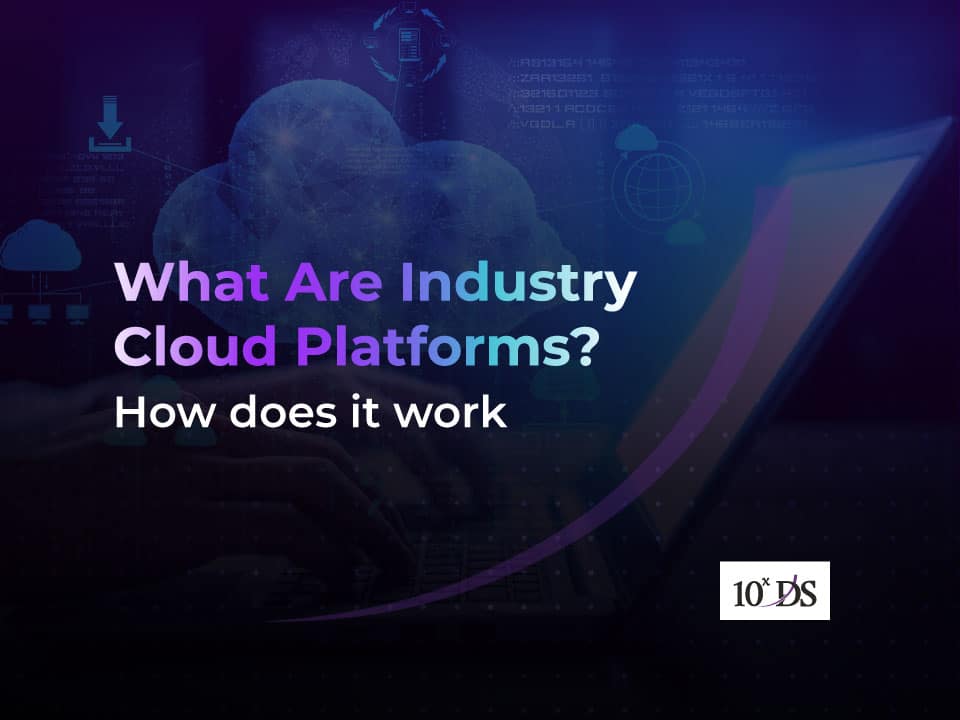
What Are Industry Cloud Platforms? How does it work
Industry cloud platforms (ICPs), also known as vertical cloud platforms, are cloud-based software solutions that cater to the specific needs of a particular industry or niche. These platforms provide a range of services, including data management, analytics, and software development tools, that help businesses in the industry to streamline their operations, improve efficiency, and reduce costs. ICPs can be classified based on their services, such as software as a service (SaaS), platform as a service (PaaS), and infrastructure as a service (IaaS)
The concept of industry cloud platforms has gained popularity in recent years as more and more businesses look to leverage the benefits of cloud computing. Rather than using a generic cloud platform, businesses are now turning to industry cloud platforms that are tailored to their particular industry.
So, how do industry cloud platforms work? Essentially, they operate in the same way as any other cloud platform. The platform provider maintains a network of servers, storage systems, and other infrastructure that customers can access over the internet. Customers can then use the platform to develop and deploy their own applications, or they can use pre-built applications and services provided by the platform provider. These tools may include software development kits (SDKs), application programming interfaces (APIs), and development frameworks.
ICPs are designed to help businesses in various sectors optimize their operations, drive innovation, and enhance collaboration across the value chain. By leveraging the cloud and related technologies such as artificial intelligence (AI), machine learning (ML), and the internet of things (IoT), ICPs enable companies gain real-time insights into their operations, identify areas for improvement and achieve digital transformation and stay competitive in today’s fast-paced business environment.
The key difference between a generic cloud platform and an industry cloud platform is the level of customization and specialization available for a particular industry. Such industry-specific features and functionality are not available on generic cloud platforms. Another key advantage of industry cloud platforms is that they can often integrate with other systems and applications used by businesses in the industry. This allows businesses to easily share data and collaborate with partners and suppliers, which can lead to improved efficiency and cost savings.
Therefore, we could say that ICPs enable firms to capitalise on the most recent advances in their market while remaining competitive. Healthcare providers, for example, can utilise ICPs to enhance patient outcomes and save costs, whereas financial companies can use ICPs to control risk and improve consumer engagement. Platforms like Salesforce Financial Services Cloud, Finastra, and others are some of the ICPs in financial services market. In the retail sector, Salesforce Commerce Cloud, Shopify, and Oracle Retail Cloud offer cloud solutions for website and product management, payment processing, and inventory management.
The functioning of ICPs involves a combination of domain expertise, technology, and partnerships. Industry-specific knowledge is critical to understanding the unique challenges and requirements of each sector. This knowledge is used to develop tailored software solutions that meet the needs of businesses in that sector.
Finally, partnerships are a key component of the functioning of ICPs. These platforms often collaborate with other technology vendors, service providers, and industry associations to deliver comprehensive solutions to businesses in their respective sectors. By leveraging these partnerships, ICPs can offer a range of complementary services to help businesses improve their overall performance.
ICPs offer scalability, flexibility, and cost-effectiveness. They allow businesses to scale their operations up or down as needed, without having to invest in additional infrastructure or resources. This is particularly beneficial for small and medium-sized businesses that may not have the resources to build and maintain their own IT infrastructure.
Conclusion
Industry Cloud Platforms are revolutionizing the way businesses operate in various sectors. By leveraging cloud technology, advanced analytics, and partnerships, ICPs are enabling companies to achieve digital transformation, improve their processes, and stay ahead of the competition.


